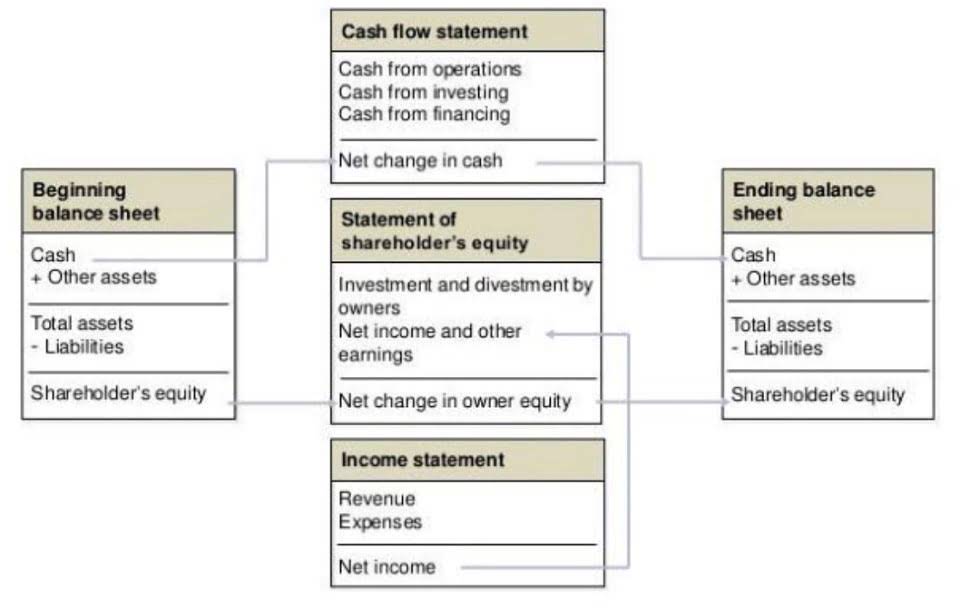Introduction to construction accounting for busy contractors

However, the more projects you have on the go and the more people that work for you, the more you need to have a reliable bookkeeping process. Tools like Planyard simplify the process by automating routine tasks, providing real-time financial visibility, and integrating with existing accounting software. Embrace streamlined bookkeeping practices to improve efficiency and ensure financial success in your construction projects. Without consistent financial reports, it’s challenging to understand project profitability and make informed decisions. Manual reporting methods are time-consuming and prone to errors, resulting in inaccurate data.

The Bookkeeper Understands The Construction Industry
Gaining a thorough understanding of these forms and filing them accurately and timely is essential to stay compliant with tax what are retained earnings regulations. This article is only intended for bookkeepers who are considering or have newly signed on contracting businesses. Different constructions companies will have different needs but the above serve as guidelines as to what the bookkeeping job will entail. Bookkeeping for such businesses are more nuanced and complex but these are the bare minimums that should be considered when first taking on a contracting client. A small business that cannot afford this should consider outsourcing its bookkeeping, accounting, and financial management to third parties, such as Virtual Construction Assistants. Apart from multiple prevailing wage and union rates, contractors commonly deal with multiple rates for numerous other reasons.
- With the steps in this guide, you have everything you need to do construction accounting for your company the right way.
- Entering the world of construction bookkeeping might seem daunting, but with the right tools and understanding, it’s a manageable and crucial aspect of running a successful contracting business.
- For most applications, the percentage completion method is preferable, though it requires more ongoing bookkeeping work.
- For one, payroll for construction is more complex, and involves much more than agreeing on a flat rate for every project.
- As a project progresses toward completion, the contractor can bill for the work they’ve performed, i.e. the completion percentage.
- QuickBooks Online is one example of accounting software that automates the bookkeeping process.
Support for Accountants, CFOs, and VPs of Finance

Once you’ve made your choice, foster a collaborative working relationship with the outsourced team by defining mutual expectations, goals, and objectives. This approach will help align their efforts with your company’s financial targets, ensuring a productive and fruitful partnership. A seamless partnership with your outsourced bookkeeping team relies on clear, open, and transparent communication. Choose a provider that demonstrates responsiveness and adaptability to your company’s unique needs and preferences. Below are 5 tips that should be standard practice for bookkeepers of contracting businesses.
Prepare financial reports:
These tools can provide detailed insights into your construction company’s financial performance and enable you to make informed decisions based on accurate, up-to-date information. Whether you are a small contractor or a large construction firm, utilizing these tools can provide significant benefits and give you a competitive edge. Construction bookkeeping has its unique challenges due to the nature of the industry. As a construction company, you need to keep track of your finances accurately to ensure your projects remain profitable while bookkeeping for construction companies complying with tax regulations.
Tracking your revenues and cost of sales by project
- They should also use accounting software that can generate financial statements automatically.
- Financial statements, including income, cash flow statements, and balance sheets, are compiled by construction company bookkeeping.
- You’ll have a precision system to track income and expenses to the project or customer level.
- Simply put, construction bookkeeping is the systematic recording, maintaining, and analyzing of financial transactions related to a construction project.
- So, when bidding on construction projects, each cost must be carefully examined by checking current market prices to win the bid.
- One potential downside of the percentage of completion method is that businesses may incidentally underpay or overpay for taxes depending on how accurately they estimate costs.
The balance sheet provides a snapshot of your construction company’s financial position at a specific point in time. It lists assets, liabilities, and shareholder equity, and Certified Bookkeeper helps you understand your company’s liquidity, solvency, and profitability. By analyzing changes in your balance sheet over time, you can assess whether your construction company is growing or experiencing financial distress. Cost allocation is the process of assigning costs to specific activities or projects. In construction, cost allocation is essential for tracking project expenses and ensuring that costs are accurately reflected in financial reports.
Boost your team’s efficiency with Hubstaff’s productivity tools
There are dozens of accounting ratios that look into various aspects of a company’s finances. Below are several of the most common accounting ratios, including the current ratio, quick ratio, debt-to-equity ratio, and working capital turnover. Construction businesses that have annual revenues exceeding $25 million over the last three years are required to use the percentage of completion method.

GET INFORMED

The money that a client holds until the project has been completed satisfactorily is generally put into an asset account called a Accounts Receivable Retainage or Retainage Dues account. Regardless of the option you choose for your bookkeeping needs, it is useful to understand the process involved in construction bookkeeping. One of the most significant challenges in construction is dealing with fluctuating material and labor costs. Market conditions, supply chain disruptions, and seasonal variations can cause unexpected cost increases, making it difficult to stick to budgets. Regular financial reviews provide valuable insights into your company’s performance and help identify areas for improvement. Accurate record-keeping of project-related expenses is made possible by bookkeeping.
